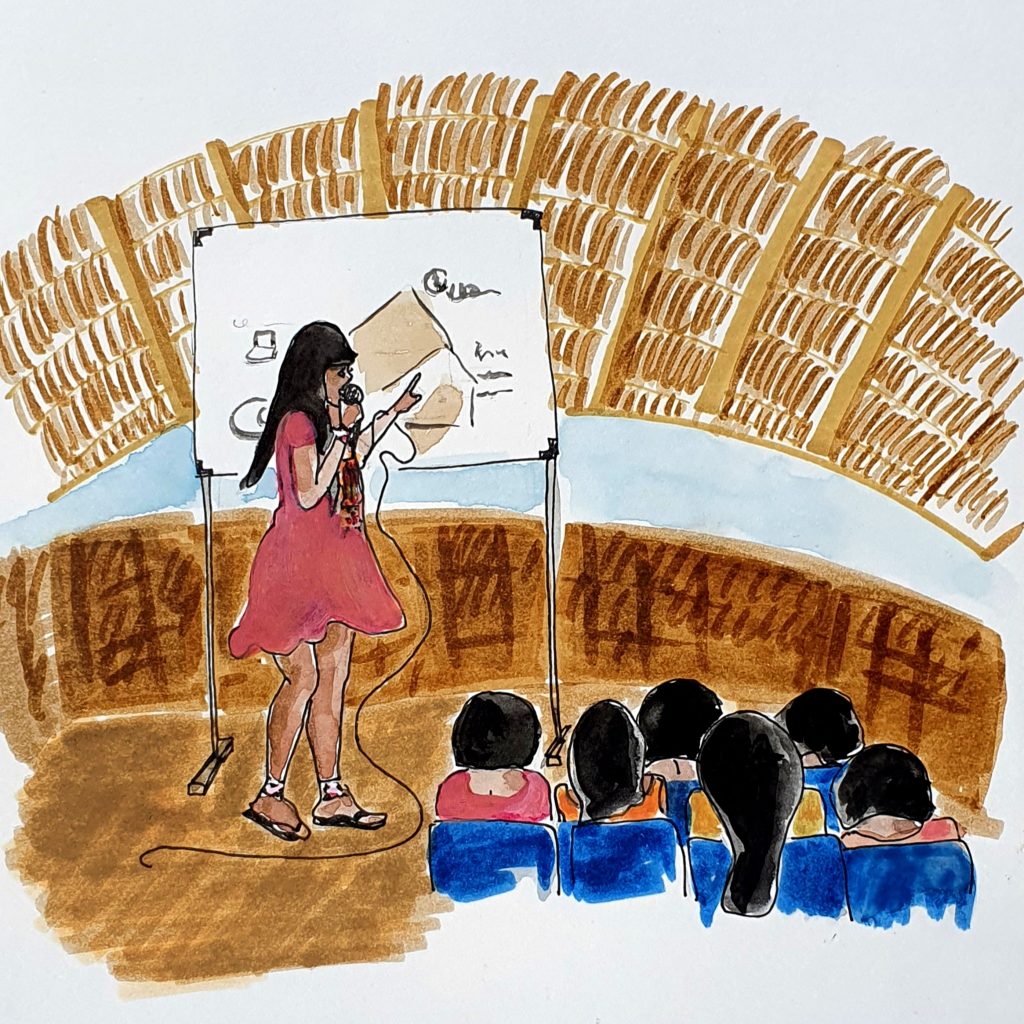By Sandra Damiani (Sapopema Comunicação Socioambiental)

As warriors, mothers and guardians of culture and ancestral knowledge, indigenous women want to find their way into joint participation with men in the decision-making involving their people. Eliane Xunakalo, from the Bakairi people, has a busy routine on long journeys that can take days to reach distant villages to visit different peoples spread across Mato Grosso, a state in the Amazon which is nearly three times bigger than Germany. With two postgraduate degrees under her belt, she managed to break with the constraints of access to education imposed on indigenous people and works as an institutional advisor for the Federation of Indigenous Peoples and Organizations of Mato Grosso (Fepoimt) in Cuiabá. Her goal is to set up the Womens Department, an achievement that comes with the support of GIZ Brazil.
Just like Eliane Xunakalo, indigenous women want to have more opportunities to participate in decision-making and are coming together. Currently, the state has nine indigenous women’s associations and one state representation, the Organization of Indigenous Women of Mato Grosso (Takiná, a word in Karajá that means ‘star’ and can only be pronounced by women).
“This is primarily a patriarchal culture, so it is difficult for women to have a say, but this is changing – you now find female chiefs and leaders. It’s a matter of education and understanding that we don’t want to change the culture, but rather have the opportunity to influence and have an input in decisions since woman are also part of the community. This will not hurt, on the contrary, it will be an enriching process,” says Eliane.
Despite the increased number of indigenous women in school, access to schools outside indigenous lands is hard. Few women have access to universities, which are far from the villages and involve costs for food, transport and accommodation. In many villages, such as those inside the Xingu Indigenous Park, where 16 people, live, a trip to the capital city of Cuiabá takes up to 3 days by boat, car and bus. “Going to school in quite hard. I’m giving back not only to my community, but also to other peoples. With the knowledge I have, I can help other people. I feel honored,” says Eliane Xunakalo.
She notes that cultural aspects need to be respected, such as the fact that indigenous women are not separated from their children and husband. Respect for these cultural differences provide the enabling conditions for their involvement. “We don’t separate from our small children. These are details that need to be understood and supported. As indigenous women, we cannot fail to get involved because we have a child,” she emphasizes.
A pioneering process in the consultation of indigenous peoples
A key impetus for strengthening indigenous female leaders in the state took place during the public consultation process under the REM-MT Program (REED Early Movers). This initiative is intended to reduce forest deforestation and greenhouse gas emissions through financial compensation for forest conservation, with indigenous peoples as one of the key actors as they are the guardians of the largest preserved areas in the Amazon rainforest.
The public consultation ran for more than a year and a half, and was a pioneer in Brazil for the full compliance with the recommendations in ILO’S Convention 169. This involved listening to and engaging directly with the indigenous peoples, where they articulated their claims to ensure protection of their lands, sociocultural heritage of individual peoples, and keeping a standing forest. Despite the various mixed workshops held, women were under-represented. “We raised the idea of a women-only workshop. GIZ Brazil helped to raise the funds and, in my opinion, this was the best workshop ever since there were 250 women in attendance,” says Eliane Xunakalo.
In total, 1,500 members from 42 peoples attended the public consultation, which was held as part of twelve regional replication and pre-consultation workshops. The goal was to establish the indigenous subprogram under the REM-MT Program, which required not only complex logistics efforts to gather representatives of peoples who live far away from each other, hiring interpreters and preparing informative materials. The booklets for the womens’ workshop also had unique content, including topics such as domestic violence.
Bringing the indigenous peoples of Mato Grosso together in a public consultation process is an enormous challenge. To give you a sense of it’s cultural richness, this Amazonian state has 50,000 indigenous people from 43 ethnic groups who speak 35 languages, in addition to those living in voluntary isolation. A meeting of these peoples who live in remote locations scattered across more than 70 indigenous lands only worked out because their leaders were heard and had the institutional support of the REM-MT Program.
“Historically, our State has no appreciation of indigenous peoples. The REM gave us the opportunity to engage with the State. We do have disagreements, but we recognize that GIZ Brazil plays a facilitation role to avoid potential conflicts and supports us because indigenous issues are complex and are not understood,” says Eliane Xunakalo.
Project: REDD+ Program for Early Movers (REM)
Lead executing agency: Mato Grosso State Environment Department (Sema/MT), Acre State Environment Department (Sema/AC) and Acre State Climate Change Institute (IMC/AC), Ministry of the Environment (MMA)
Financier: KfW Development Bank